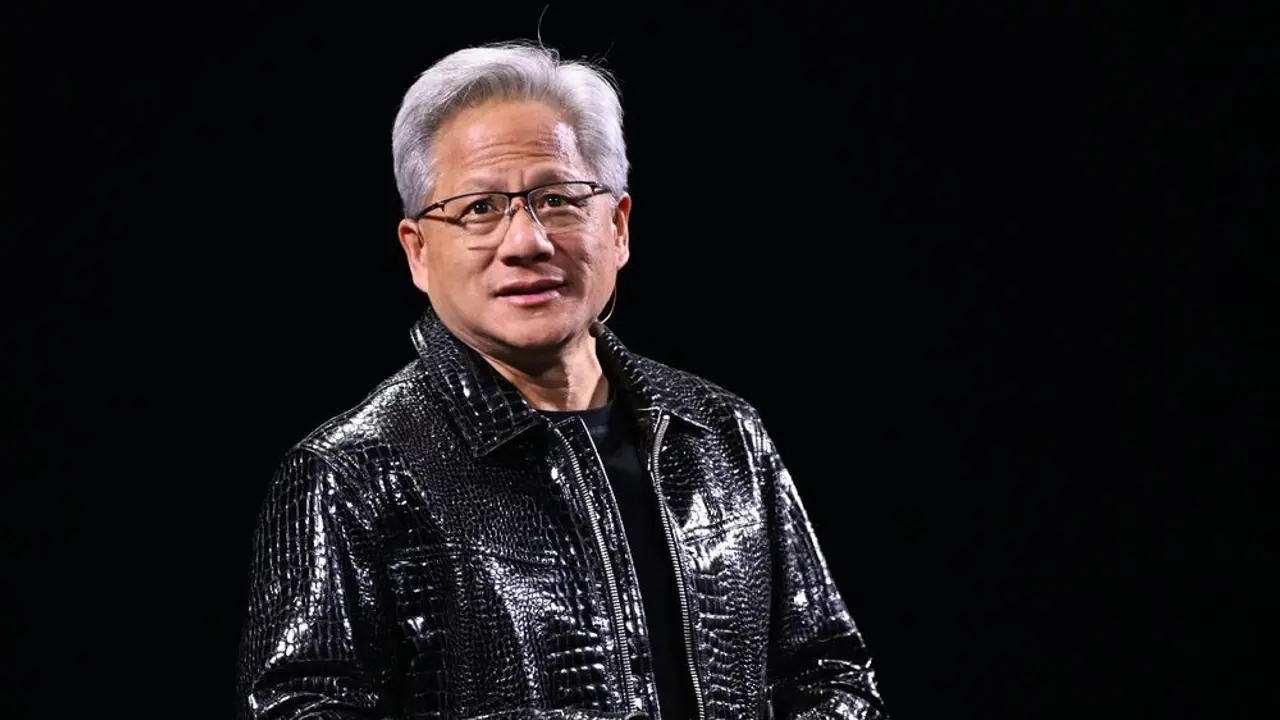In addition to its partnerships, Nvidia also announced Halos — a comprehensive safety system bringing together the company's lineup of automotive hardware and software safety solutions with its AI research in AV safety.
Nvidia (NVDA) stock traded nearly 2% lower on Tuesday afternoon, even as CEO Jensen Huang announced a slew of new deals during his keynote address at the GTC 2025.

Huang announced that Nvidia would be teaming up with T-Mobile (TMUS), MITRE, Cisco (CSCO), ODC, and Booz Allen Hamilton to build a full-stack for radio networks in the U.S.
“Remember, $100 billion of the world’s capital investments each year is into radio networks and all of the data centers provisioning for communications,” said Huang.
He explained that wireless networks must be integrated with AI to seamlessly connect hundreds of billions of phones, sensors, cameras, robots and autonomous vehicles in the future.
“Of course, AI will do a much better job of adapting those signals,” he said.
Huang also unveiled the NVIDIA AI Data Platform, a framework that storage providers can use to build AI-powered infrastructure for handling complex queries in real time. Companies like Dell (DELL), International Business Machines (IBM), Hewlett Packard Enterprise (HPE), and NetApp are partnering with Nvidia to develop customized AI storage systems designed to process enterprise data more efficiently.
Meanwhile, Nvidia and Alphabet (GOOGL) are expanding their AI collaboration to make AI tools more accessible and drive innovation in healthcare, manufacturing, and energy.
Engineers from both companies will use Nvidia’s AI platforms to improve robotics, drug discovery, and energy grid optimization. Google Cloud will also be among the first to use Nvidia’s latest AI hardware, while Nvidia will adopt Google DeepMind’s SynthID watermarking tech to track AI-generated content.
Huang also announced that Nvidia is entering a partnership with General Motors to build a future self-driving car fleet.
He said that AI capabilities would be integrated into all three facets of GM’s production – manufacturing, enterprise, and in-the-car. This means AI will be used to make the car, design the car, and will be integrated into the car for the end consumer.
In addition to its partnerships, Nvidia also announced Halos — a comprehensive safety system bringing together the company's lineup of automotive hardware and software safety solutions with its AI research in AV safety.
Halos spans chips and software to tools and services to help ensure safe development of AVs from the cloud to the car, with a focus on AI-based, end-to-end AV stacks.
Huang said that AI is going through an inflection point, explaining that it has become more useful, and is more widely used, and also because the computational power needed to train models has grown tremendously.
“Inflection happening in the world’s data center build-outs,” he added.
He expects data center build-out to reach over a trillion dollars before long, as demand for AI and a new computing approach gets higher. “The world is going through a transition not just in terms of the amount of data centers built, but how they’re being built,” he added.
The world is going through a platform shift, he noted, shifting from human-made software to AI-made ones.

On Stocktwits, retail sentiment around Nvidia's stock improved to 'bullish' from 'neutral' a day ago, even as the stock struggled to recuperate.
Someone questioned why Nvidia’s CEO, Jensen Huang, doesn’t directly explain how recent developments will translate into higher revenue and profits, arguing that’s what investors want to hear.
Nvidia's stock is down over 14% in 2025.
For updates and corrections, email newsroom[at]stocktwits[dot]com.<
Read also: Nvidia Stock Slips After Amazon Reportedly Undercuts AI Chip Prices — Analysts Expect ‘Wake Up Call’ From Jensen Huang’s GTC Keynote
